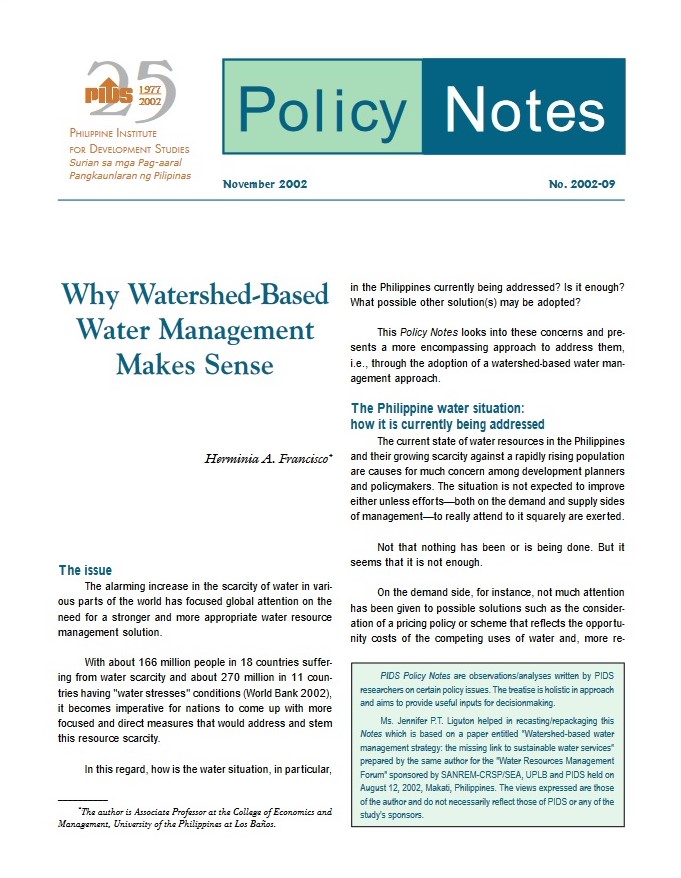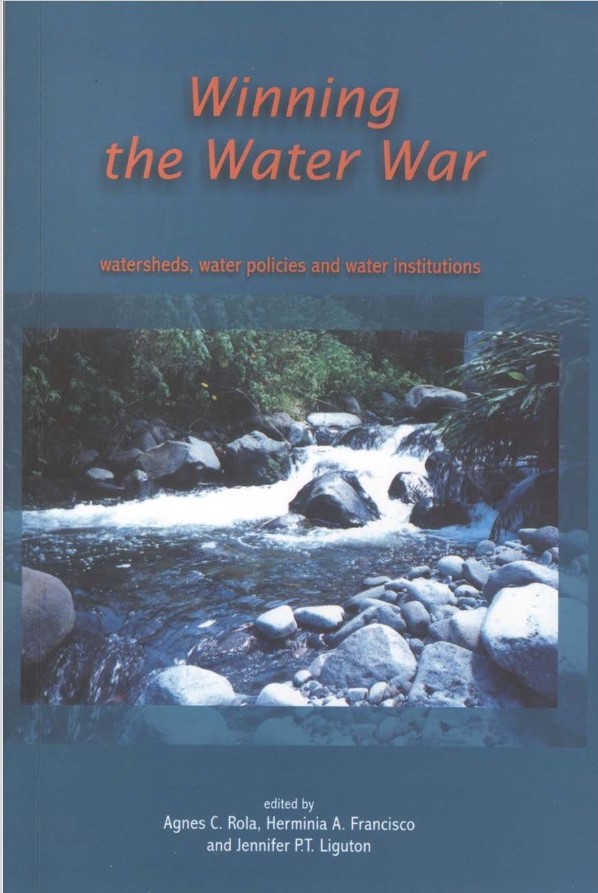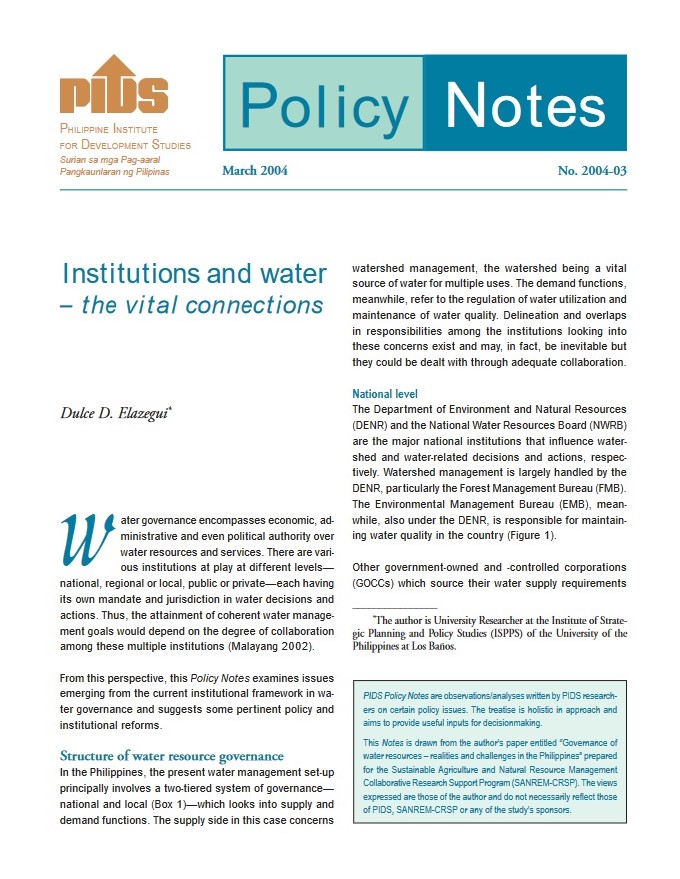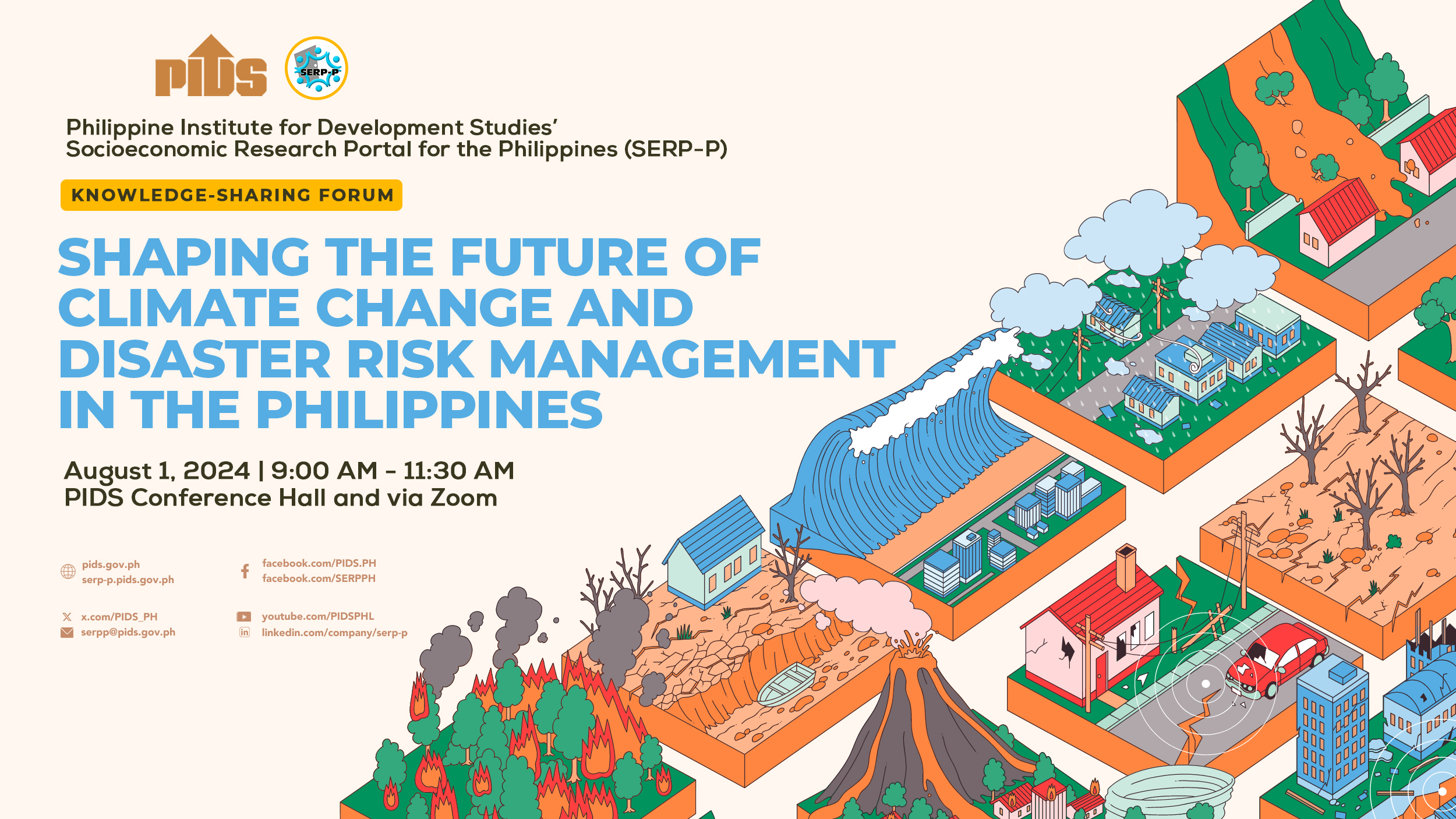Water pollution is a major reason for the decreased availability of and access to clean potable water. This was the observation made by Philippine Institute for Development Studies (PIDS) Senior Research Fellow Dr. Danilo Israel whose review imputes poor management of freshwater water resources, particularly in the area of water pollution.
He says that while freshwater is abundant in the country, estimates show that only 39 percent of classified inland surface water bodies are potential water sources for domestic use. Based on further estimates, he also said that only 1,907 cubic meters (the second lowest among Southeast Asian countries) of freshwater are available to every Filipino annually. This predicament, according to Israel, is further exacerbated by water pollution.
Citing the Environmental Management Bureau (EMB), Israel explains that the number of monitored freshwater bodies which failed the standard in terms of Dissolved Oxygen (DO) and Biological Oxygen Demand (BOD) has been increasing significantly at average annual rates of 22.90 percent and 22.30 percent, respectively, from 2000 to 2007. Likewise, he explains that many freshwater bodies, especially those in urban areas, have been contaminated with suspended solids, heavy metals and other harmful chemicals.
Israel asserts that if this trend continues, more Filipinos will not have enough access to safe-drinking water especially since demand for clean water constantly increases with population growth. As a consequence, Israel fears that the country may not attain the Millennium Development Goal that at least 86.6 percent of the population should have adequate access to potable water by 2015.
Israel reminds policymakers and the public that clean freshwater is a vital natural resource and without its ample supply, the lives and health of people could be put to risk. Specifically, he points out that there is a positive relationship between water pollution and water-borne diseases. The World Bank, for instance, has estimated that exposure to water pollution and poor sanitation accounts for one-sixth of reported disease cases, and nearly 6,000 premature deaths per year.
Israel therefore urges the government to improve freshwater management in general and contain water pollution in particular. He suggests employing and expanding economic instruments such as pollution fines and environmental taxes to control pollutive discharges of economic activities. He likewise points out that limited law enforcement magnifies the problem on water pollution and that more steadfast implementation of water-related legislations is thus needed.
He says that while freshwater is abundant in the country, estimates show that only 39 percent of classified inland surface water bodies are potential water sources for domestic use. Based on further estimates, he also said that only 1,907 cubic meters (the second lowest among Southeast Asian countries) of freshwater are available to every Filipino annually. This predicament, according to Israel, is further exacerbated by water pollution.
Citing the Environmental Management Bureau (EMB), Israel explains that the number of monitored freshwater bodies which failed the standard in terms of Dissolved Oxygen (DO) and Biological Oxygen Demand (BOD) has been increasing significantly at average annual rates of 22.90 percent and 22.30 percent, respectively, from 2000 to 2007. Likewise, he explains that many freshwater bodies, especially those in urban areas, have been contaminated with suspended solids, heavy metals and other harmful chemicals.
Israel asserts that if this trend continues, more Filipinos will not have enough access to safe-drinking water especially since demand for clean water constantly increases with population growth. As a consequence, Israel fears that the country may not attain the Millennium Development Goal that at least 86.6 percent of the population should have adequate access to potable water by 2015.
Israel reminds policymakers and the public that clean freshwater is a vital natural resource and without its ample supply, the lives and health of people could be put to risk. Specifically, he points out that there is a positive relationship between water pollution and water-borne diseases. The World Bank, for instance, has estimated that exposure to water pollution and poor sanitation accounts for one-sixth of reported disease cases, and nearly 6,000 premature deaths per year.
Israel therefore urges the government to improve freshwater management in general and contain water pollution in particular. He suggests employing and expanding economic instruments such as pollution fines and environmental taxes to control pollutive discharges of economic activities. He likewise points out that limited law enforcement magnifies the problem on water pollution and that more steadfast implementation of water-related legislations is thus needed.












